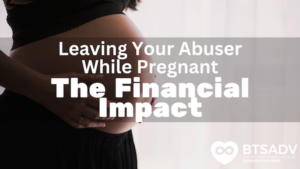By Hanna Embry Break the silence against domestic violence does...
Read MoreSteps to Handle Domestic Violence Among Teenagers
What are the steps to handle Domestic Violence among Teenagers?
At any given moment you have the power to say this is not how the story is going to end.
Christine Mason Miller Tweet
Roughly 1.5 million high school boys and girls in the U.S. admit to being intentionally hit or physically harmed in the last year by someone they are romantically involved with. And 33% of adolescents in America are victims of sexual, physical, verbal, or emotional dating abuse.
Why do you think a teenager experiences domestic violence?
There are many reasons, and one of them is when a teenager is experiencing violence at the abode, that’s when their brain starts forming the picture about ‘fight and flight’ mode. When they have seen what’s happening inside and around the home, that’s what they start fearing the most while living in the same community. They might have tried to confide their feelings about violence at home, but nobody is showing them the right way by offering help or counseling. That’s when family violence takes a turn for other abuses in a teenager’s life.
Teenagers are affected by domestic violence if they have experienced:
- Domestic violence and abusive relationships themselves.
- Have you seen any of their loved ones getting affected by an injury, distress, or damaged assets?
- Overheard or faced the situation of domestic violence.
- Tried to intervene as a protector or a patron for someone who is getting affected by violence.
- Regularly coming across an abuser causes violence.
How can we help the teenagers affected by domestic violence?
There are many ways to help teenagers as their brain is in the initial formation of acceptance of abuse, so this can be changed with various trial methods so that teenagers can learn to raise themselves by asking for help or reparenting themselves.
- The first and foremost way is to build a healthy relationship between an adult and a teenager. If you truly want to help them, then be a good listener—someone they can rely on and won’t be judged for sharing their experiences (both good and bad).
- The second way could be trying to crack the conversation about if they think about taking or getting enrolled in therapy sessions for their healing process to start and prevent them from violence at all.
- The third way is to assure them that you are always available for them whenever they need you. The trusting relationship should open a support system for them so that whenever they are going through something, they aren’t looking for help elsewhere.
- The fourth way is to work on your own relationships within the household. If you and your spouse are having louder arguments, then how could you expect your kids to come to you for help? Learn to respect the differences and sort them out in a calm way rather than creating a chaotic situation at home.
- The fifth way is to set up boundaries. Let the teenagers come to you when they feel like it rather than forcing them to do something they are not willing to do. This unhealthy choice of relationship will yield no results and put all of you through lots of disappointments, depression, and anxious moments.
- The sixth way could be teaching the children by gifting them books on reparenting, like ‘Reparenting Yourself’ by Art Martin or Healing Is The New High by Vex King. These books have a plethora of wisdom for people who have been trying to break the cycle of generational trauma and learning to find themselves without feeling traumatized.
50% of young people who experience rape or physical or sexual abuse will attempt to commit suicide. And Teens who have been abused hesitate to seek help because they do not want to expose themselves or are unaware of the laws surrounding domestic violence.
That’s why all those steps are essential to building teenagers in a safe and healthy environment. Abuse could take place in any form, be it sexual, physical, and emotional, online bullying, online sexual abuse, and online emotional abuse.
It is important to know the effects of abuse by recognizing the abuse in the initial stages and by forming guidelines on how to heal from the particular kind of abuse. We all are adults and know by now that yelling or breaking things help no one.
So, prepare the teenagers to either ask for help or to call 911 when the situation turns too worst for them to handle by themselves.
“You survived the abuse. You’re gonna survive the recovery.” — Olivia Benson.
Leaving an Abuser while Pregnant and the Financial Impacts
By Hanna Embry The financial impact, and overall impact of...
Read MoreLeaving is Only the Beginning: The Real Journey After Abuse.
By Iris Pendelton The Real Journey Begins After You Leave:...
Read MoreWhen Two Hearts Are Silenced.
By Tara Woodlee, President of Break the Silence Against Domestic...
Read More









